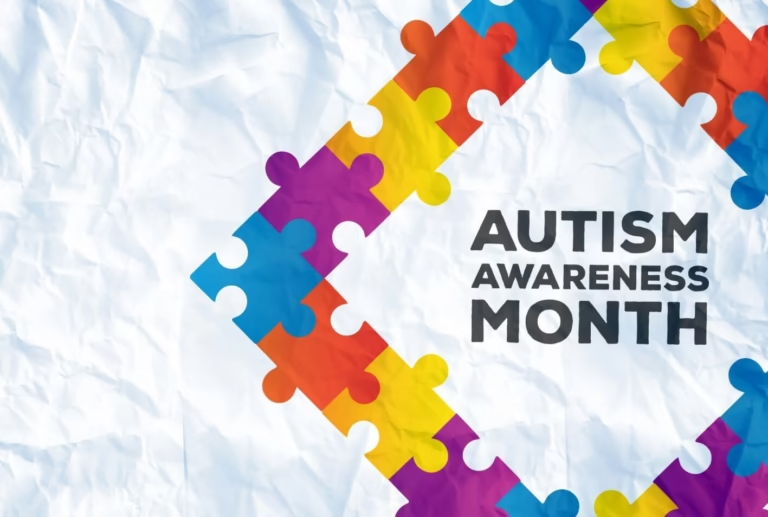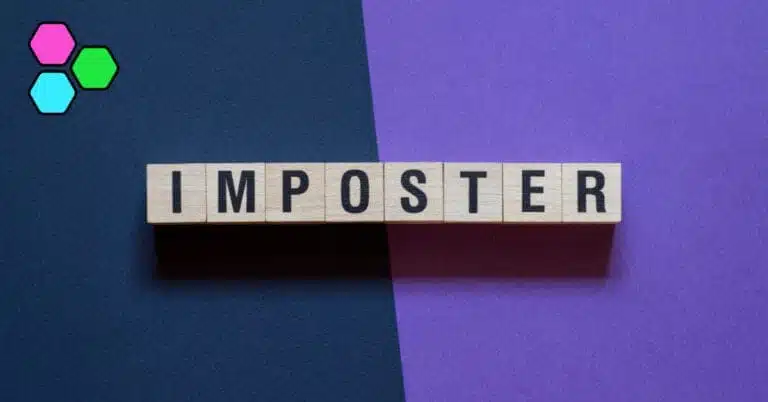How can people with autism find the best jobs for them?
Whether you’re an autistic adult considering a career change or you’re about to step into the workforce for the very first time, it’s possible that you’ll encounter unique challenges along the way.
While some people’s first instinct might be to see this as a disadvantage, I choose to look at it from the opposite perspective.
Yes, there are certain things that people with autism might find harder, but it’s important to recognize and leverage your strengths and abilities and remember that there are plenty of jobs out there where we can do much better than others.
Of course, finding the right job isn’t always straightforward. That’s why we’ve developed a free autistic career matching tool to help you identify the best jobs for people like you with autism: roles that align with your strengths, interests, and work preferences. It’s a great way to start narrowing down your options and focusing on opportunities that truly suit you. Try it out and see which careers could be the best fit for you!
Once you’ve done that, then this guide is here to help you through the possible challenges, identify your strengths, and find a career that aligns with your skills and needs.

How to Find the Right Career as an Autistic Person
Choosing the right career is one of the most important decisions you’ll ever make, second only to choosing a life partner.
Without a doubt, it’s a choice that will shape your long-term happiness and success.
And since nearly a third of your life is spent at work, a fulfilling career isn’t just about earning a paycheck, it’s about finding joy and purpose in what you do.
Imagine waking up each day feeling excited about the day ahead rather than rolling out of bed and dreading the hours to come.
That person is truly blessed!
The career you select will significantly influence your satisfaction, your passion to keep on learning, and your ability to grow professionally.
By taking some time to reflect on your strengths and visualize the life you want in 10, 20, or even 50 years’ time, you can make an informed decision to help find the best jobs for people with autism. This should help to prevent future regrets and pave the way for a fulfilling journey all the way to retirement.
The Reality of Employment for Autistic & Asperger Adults
I previously wrote an article about the state of employment for autistic adults, and to be honest, it makes for quite a depressing read.
However, there’s no escaping the reality that only 30% of autistic adults are employed, that a 33% pay gap exists between autistic and non-autistic professionals, and that 48% of autistic employees experience bullying or harassment at work.
I also believe that many autistic people find themselves in underemployment, which means working in roles that are far below their actual capabilities.
In my view, the reasons behind these statistics are complex.
Fundamentally, though, it comes down to a job market that’s designed to prioritize the needs of neurotypical applicants and a lack of understanding (and sometimes ignorance) about autism and the unique strengths autistic individuals bring to the workplace.
The good news is that this is slowly improving.
The stigma around autism, Asperger’s and other forms of neurodiversity are gradually fading and it’s becoming easier for people with with the conditions to find the best jobs for them.
However, we can’t simply wait for society to change on its own.
The only way to shift these negative perceptions permanently is to break into the jobs that we want with confidence and demonstrate to the world the incredible things we can achieve.

Finding the Best Jobs for People With Autism
The first step is understanding your autistic strengths and interests.
Many people approach this the wrong way.
They start with the job they think they want, maybe it pays well or their parents encouraged them to pursue it or they saw it being glorified on social media.
Then they try to identify the strengths and interests required for that role within themselves, forcing it to fit them.
This is a critical mistake.
As a person with autism, the key is to find the best job for you, not the other way around.
Before doing anything else, take the time to sit down and map out a list of all the things you enjoy, the skills others have praised in you, and the activities that engross you so much you lose track of time.
Be honest with yourself and consider seeking some objective feedback from trusted sources.
Once you’ve created a list, compare it with the core aspects of a potential career to see if it’s a good match.
If it’s not, then I’d strongly recommend discounting that option and exploring something else. If it is, then great, you can add that career to your shortlist.
Redefine Autistic & Asperger’s Career Success
Sadly, most of the career advice out there is geared towards neurotypical people.
As I’ve mentioned, if you allow yourself to be guided towards an ill-suited career, you may not find the best jobs for people with autism. Instead, you’ll find yourself trying to fit into an environment that doesn’t align with your neurodivergent needs.
Ultimately, this is going to have a detrimental impact on both your work performance and mental health in the long term.
So for people like us with autism and Asperger’s, what exactly can we do to find the best jobs?
You want to forget what your family or friends or the media or society defines as career success, and focus instead on what makes you happy.
Yes, you could be earning $200,000 a year, but if the work makes you miserable and you’re working 80 hours a week, then what you gain in financial health, you lose in terms of your mental well-being and family life.
When it comes to careers, I’m a great believer that there’s a sweet spot where everything is in balance – your salary, your responsibilities, your workload, your opportunities for development, your progression and your free time.
Instead of defining career success by salary or status alone, try to think of it in a much more holistic way, as this approach will sustain you throughout life.
There are four types of wealth in life:
1. Financial Wealth – money
2. Social Wealth – status
3. Time Wealth – freedom
4. Physical wealth – health
Be careful of jobs that offer you wealth in categories 1 and 2, but rob you of 3 and 4.

Strategies for Helping People With Autism & Asperger’s Find the Best Jobs
Now that you know the traps to watch out for and how to avoid them, how exactly do you go about securing the best jobs for people with autism?
Craft a CV Highlighting Your Autistic Strengths
If you’ve taken the time to properly reflect on your skills and strengths, now is the time to put them all down on paper.
I can’t stress enough how important it is to make a strong first impression on any potential employer.
So, first things first, everything that goes into your CV should be positive. Focus on highlighting your strengths and avoid pointing to any weaknesses or challenges.
Autistic adults often possess unique skills that are highly valued in many workplaces, so don’t be afraid to showcase yours.
These could include hard skills, such as technical abilities, or soft skills, such as communication or problem-solving.
The decision to disclose your autism on your CV is a deeply personal one, and there’s no one-size-fits-all answer.
All I can share is that if it were me writing my CV, I wouldn’t mention autism until I’d secured the job.
There’s still far too much ignorance and prejudice out there for me to feel comfortable with that.

How to Perform Well in Interviews with Autism & Asperger’s
As autistic individuals, we can sometimes struggle with ambiguous or open-ended interview questions, made even more difficult by the stress and anxiety of performing in a situation where we know our social skills are being judged.
The best advice I can offer is to prepare, prepare, prepare.
Start by creating a list of your skills and strengths and practicing answers to potential interview questions.
Spend time vocalizing your answers with friends, family, or even on your own in front of a mirror, whatever makes you feel most comfortable.
Make sure to research the company thoroughly including its mission, values and the role you’re applying for. Throwing a couple of these gems into your answers shows them that you’ve done your homework and you’re genuinely interested.
First impressions matter, so make sure you’re dressed appropriately for the role. Remember that you’re being marked from the moment you walk through the door to the moment you walk out.
For many autistic individuals, managing tone and body language can be the most difficult aspect. Sit up straight, avoid fidgeting, and even though it might be difficult, try to maintain eye contact as best you can.
If direct eye contact feels overwhelming for you, then focus on the space between the interviewer’s eyes or just one eye. This can feel less intimidating but still gives the impression of active engagement.
If you’re being interviewed by a panel then as you’re speaking be sure to share the eye contact with the other people and not just the person who asked you the question, but just make sure to give most of your attention to that person.
Don’t forget to smile! You don’t need to overdo it. A small, moderate grin with your mouth closed is often enough to convey warmth and friendliness.
You need to remember that feeling stressed or anxious before an interview is completely normal, not just for autistic people but for everyone.
Those butterflies you feel in your stomach are a natural reaction to pressure, and if you don’t feel at least some pressure when walking into a job interview, then you probably don’t want it enough.
Nothing worth having comes easy. Ever. Period.
Finally, keep in mind that interviewers are often less concerned with the exact content of your answers and more interested about whether you’ll be a good fit for their team.
When they’re interviewing you, what they’re really asking themselves is “Can I see myself working with this person”. Are you a safe pair of hands or are you going to be a manager’s worst nightmare?
Try to bring a little bit of humor to the situation to help put them at ease (just as important as putting yourself at ease) and show them that you’re a normal human being and that you’re easy to get along with.
You know earlier when I said prepare, prepare, prepare?
Well, it’s also important to know when to stop preparing and just let it be.
There are a few occasions where I’ve ‘over-prepared’ for an interview, and then what happens is your answers come across as scripted and you perform poorly.
It becomes very difficult to roll with the punches and respond to unexpected questions dynamically.
So, prepare, prepare, prepare, but know when to tell that hyper-focused mind of yours to stop.
Find the balance between knowing all your onions and coming across as natural and relaxed (this comes with experience).
The Best Jobs for Autistic & Asperger’s Individuals

Data Scientist
A data scientist is someone who uses data to understand and explain the world around them to help organizations make better business decisions.
They look for patterns and trends in data, create algorithms to find trends and patterns and use special tools for carrying out complex data analysis such as Python or SAS.
There’s a really strong demand for data scientists across a wide range of industries including retail, healthcare, technology, in fact, anywhere where data-driven insights can impact outcomes.
The role of a data scientist could suit an individual with autism who is creative and enjoys problem solving. You’ll need to have strong analytical skills and be able to focus intensely on complex problems, something that many of us are really good at.
While you’ll need to work as part of a team there’s a good chance that all or some of your role can be performed remotely, giving you the opportunity to recharge when necessary and focus intensely on your work.
About half of data scientists have an undergraduate degree while just over a third hold a master’s degree.
The median annual salary of a data scientist is $108,020.
Software Developer
Software developers is another one of the best jobs for people with autism and Asperger’s.
These are people who use programming tools to build software that meets the needs of its end users.
This can include mobile apps, web development or software tailored for a specific business need, like the software used to runs cars or robots. They also work on video games, cloud-based systems, automation tools and everything else in between.
You might have heard of software developers referred to as software engineers, programmers or coders, but they’re all essentially the same thing (I’m sure a software developer would argue the point but at such a broad level it’s really semantics).
Software developers need to have strong specialist programming skills in areas such as Java, SQL, Python and Linux.
As a software developer you’ll need to work as part of a team but you’ll also need strong analytic and problem-solving skills, which for many people with autism is ideal.
In the United States, about 73% of software developers hold a degree, while 25% have a master’s degree. It is possible to get a career in software development without a degree and around a quarter of all developers are self-taught.
The median annual salary of a software developer is around $127,260.

Architect
An architect is someone responsible for designing and planning buildings and structures, making sure that they’re safe, functional and if done well, pleasing to the eye.
Architects are involved at every stage of a building project from the planning stage, through to drafting the specifications, to problem solving issues that arise with the project contractor all the way to ensuring that the project meets high safety standards.
As an architect you’ll need to meet with clients and visit construction sites, but in terms of skills that are suited for people with autism, you’ll also need strong technical and problem solving skills.
The job entails lots of careful planning and precise measurements which is something that many of us excel at.
To become an architect usually takes at least 5 years studying for a bachelors degree in architecture or 2 – 4 years studying for a post-graduate master’s degree.
After completing a degree you’ll need to work for around 3 years in a paid internship position, for instances, as a draftsperson or junior associate, before progressing to take the Architect Registration Exam.
The median annual salary of an architect in the United States is around $93,310.
Product Designer
Product designers are people who oversee the design process of a product from beginning to end. They’ll work through every stage to understand the customers pain points, speak to the researchers, gather the views of stakeholders and liaise with engineers.
Fundamentally, their job involves designing the product and they’ll bring their creative minds to make sure the product is appealing and user-friendly.
They use product design tools such as Framer, Figma, Sketch and Adobe and work as part of a team to ensure the finished product aligns with the company’s goals.
The role can be ideal for someone with autism as it requires creativity, a strong level of problem-solving skills and an eye for detail. You’ll also need to adopt a logical and structured approach to tasks that require significant amounts of focus and precision. What’s not to like, right?
While you’ll be expected to work as part of a team, this is another role where there’s likely to be flexibility around hybrid and home working, which can suit your autistic needs to recharge and focus.
To become a product developer, you’ll need to gain relevant skills in UX (User Experience), visual design tools and ideally, but not essentially, some project management experience.
The median annual salary for a product designer is around $95,770.

Research Scientist
As a research scientist, you’ll spend most of your time in the laboratory doing lab-based trials or experiments with some time spent in the field or at a university.
Research scientists are involved in almost every area of science imaginable including geoscience, pharmacology and medical research.
Day-to-day you’ll be planning and conducting experiments, organizing product and materials testing, writing research papers and reviews, preparing research proposals and much, much more.
The types of skills that are needed for this role include a methodical approach to analyzing data, attention to detail, critical thinking and the ability to work independently for long periods of time.
The work is often structured with clear goals, repeatable processes and logical progression from hypothesis to conclusion, all of which are potentially well suited to someone with autism.
To become research scientist, you’ll usually need a bachelors degree in a relevant field of science. The majority of research scientists also have a postgraduate qualification such as a MSc or an MBiol.
The median annual salary of a research scientist in the United States is $145,080.
Librarian
A librarian is someone who oversees the proper functioning of different types of libraries.
They make sure that the library database is fully organized and help people to find the materials and resources they need. They answer people’s questions in person, over the phone or via e-mail and sometimes organize activities and promotional events, such as an author reading or book sale.
At the more senior level they’ll be responsible for managing the library budget and billing for new equipment, as well as supervising the library assistants and other staff.
As a librarian you’ll need to be patient and friendly towards visitors, have strong attention to detail and good organizational skills, all which are potential autistic strengths.
This is potentially another one of the best jobs for people with autism and Asperger’s.
The requirements to become a librarian vary from place to place and while some places require basic qualifications or none at all, others require qualifications up to and including a Master’s Degree in Library Science.
The median annual salary of a librarian in the United States is $64,370.

Accountant
Accountants are financial professionals who review and analyze financial records to keep track of a company’s or individuals’ profits and losses. They’re also involved in preparing tax returns, planning projects, financial decision making and auditing.
They can be self-employed or could work for an accountancy firms or within the finance department of a business.
To be an accountant you’ll need good mathematical and analytical skills, you’ll need to be a good communicator, and like many of other the jobs mentioned, you’ll need a keen eye for detail.
The most common route to becoming an accountant is to become a Certified Public Account (CPA).
To sit the exam, you’ll need to hold at least a bachelors degree in accounting.
Most high-end accountants typically hold a Master of Business Administration (MBA) or Master of Accountancy (MAcc) post-graduate degrees.
The median annual salary of an accountant in the United States is $78,000.
Quality Control Inspector
A quality control (QC) inspector is someone who is employed by a company to assess the quality of their goods.
They usually work for company’s involved in the manufacturing of goods and are responsible for checking the product to ensure it meets the company and federal guidelines before entering the supply chain.
Part of the role involves developing a system to effectively check the quality of the products and ensure that any with defects or damages are removed.
They’ll be responsible for monitoring the manufacturing process, testing materials, gathering quality data and producing reports.
Quality control inspectors need to be computer literate and have strong problem-solving skills. They need to be hyper-focused on the materials to catch mistakes and flaws which again plays to the strengths of autistic people.
While formal education requirements vary depending on the industry and employer there is usually significant on the job training.
The median annual salary of a quality control inspector in the United States is $92,011.

Data Entry Clerk
A data entry clerk is an administrative employee responsible for ensuring the company’s databases are accurate, up-to-date, and well-organized.
They play a vital role in the organization, requiring a high level of quality control and accuracy.
Data entry clerks transfer data from physical documents, retrieve records and electronic files, and collect information used by analysts and other employees to identify patterns within the company’s operations.
To become a data entry clerk, a high school diploma or GED is typically required. This role often involves on-the-job training, but you may also pursue additional qualifications such as Certified Information Technology Professional (CITP) or Certified Professional Secretary (CPS).
The median annual salary for a data entry clerk in the United States is $40,504.
Instructional Designer
An instructional designer is someone who creates educational materials, courses, and training programs that are engaging, effective, and tailored to the needs of learners.
They work closely with subject matter experts to identify learning objectives, design instructional materials and use tools like Articulate, Adobe Captivate, or learning management systems (LMS) to create digital courses.
Instructional designers often use principles of learning theory and psychology to ensure their materials are well-structured and accessible to a wide audience.
The role can be particularly well-suited for autistic individuals who are detail-oriented, enjoy organizing information and are good at logical thinking.
While collaboration with others is part of the job, much of the work involves independent research, writing, and design, allowing for focused and structured work. Remote and flexible working options are increasingly common in this field, making it easier to manage sensory or social needs.
To become an instructional designer, a bachelor’s degree in education, instructional design, or a related field is usually required.
Some professionals also pursue certifications such as the Certified Professional in Learning and Performance (CPLP) or a master’s degree in instructional design.
The median annual salary for an instructional designer in the United States is $83,347.
Conclusion
If you’re a person with autism or Asperger’s looking for the best jobs out there, I hope this list inspires confidence in the wide range of opportunities available to you.
Be strong, embrace your unique strengths and abilities, and take pride in the qualities that make you an asset in any workplace.
Remember, feeling pressure when applying for jobs is completely normal, and setbacks or rejections are just part of the journey.
Each step forward, no matter how small, brings you closer to finding the role that’s right for you.
Stay persistent, believe in yourself, and keep moving toward your goals.
Unlock Your Full Potential with The Autistic Boss!
Join our newsletter for expert insights, practical advice, and exclusive access to free resources designed to help autistic professionals thrive in the workplace. Be the first to receive new content, updates on our latest offerings, and tools tailored to your success.
✨ Start now by exploring our free Autistic Career Matching Tool – discover careers that align with your strengths and needs! → Try it here
📩 Want more? Sign up for our newsletter at the bottom of this page to stay informed and empowered on your career journey!






















